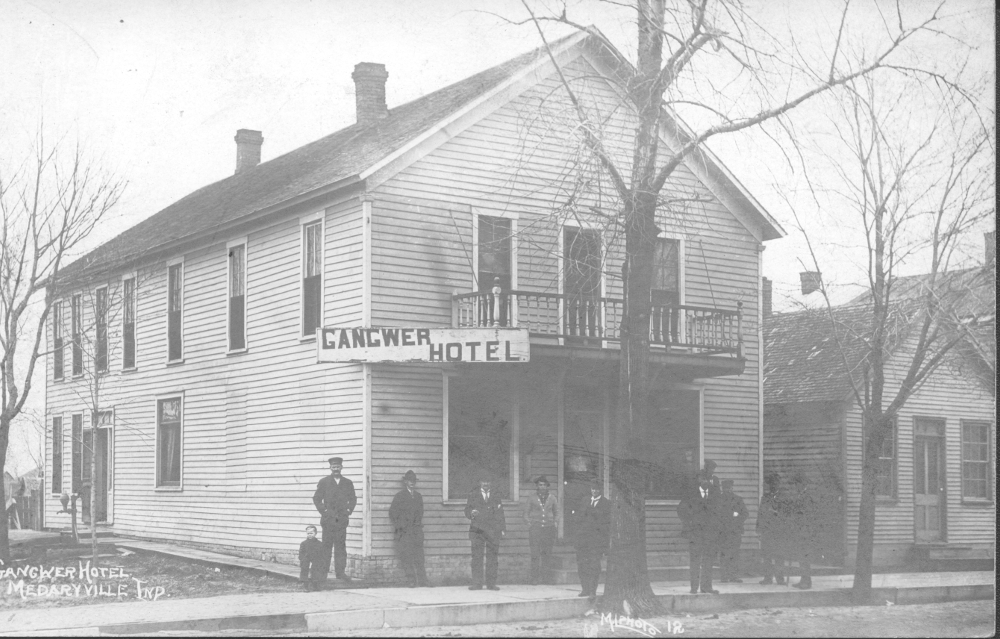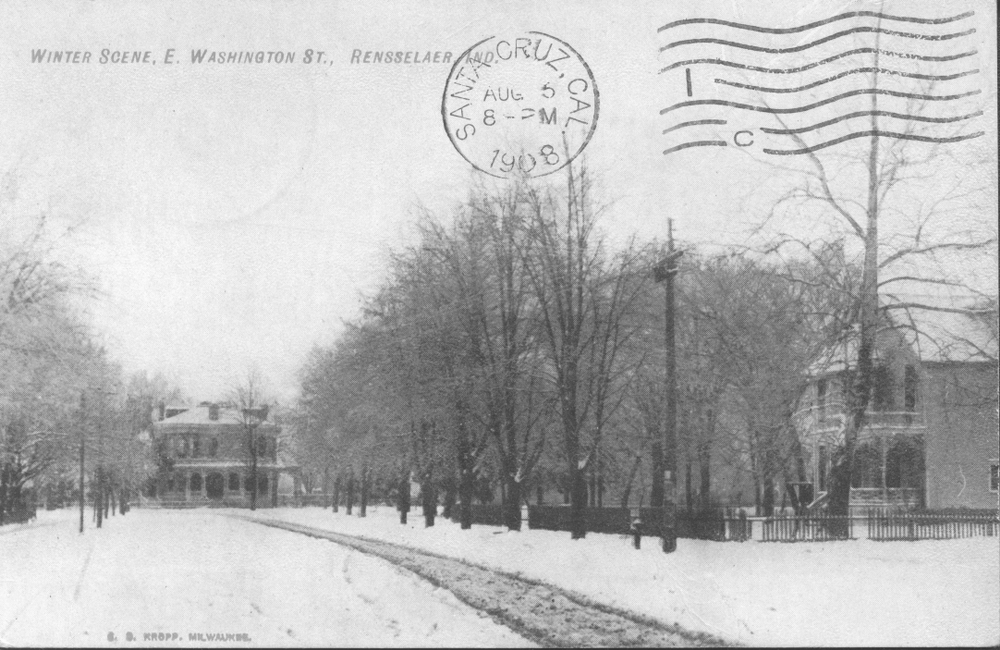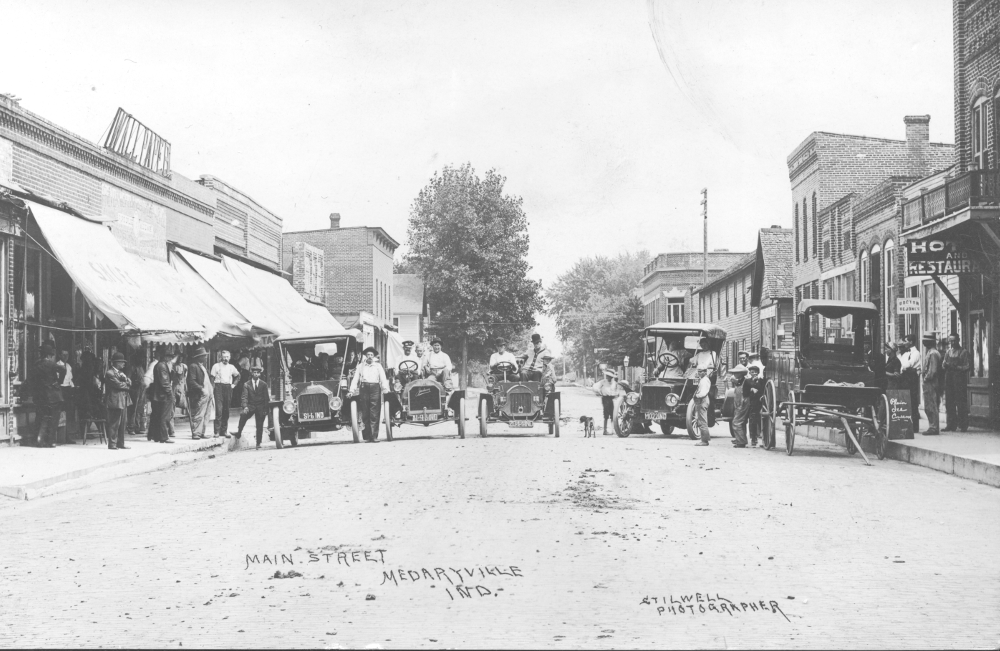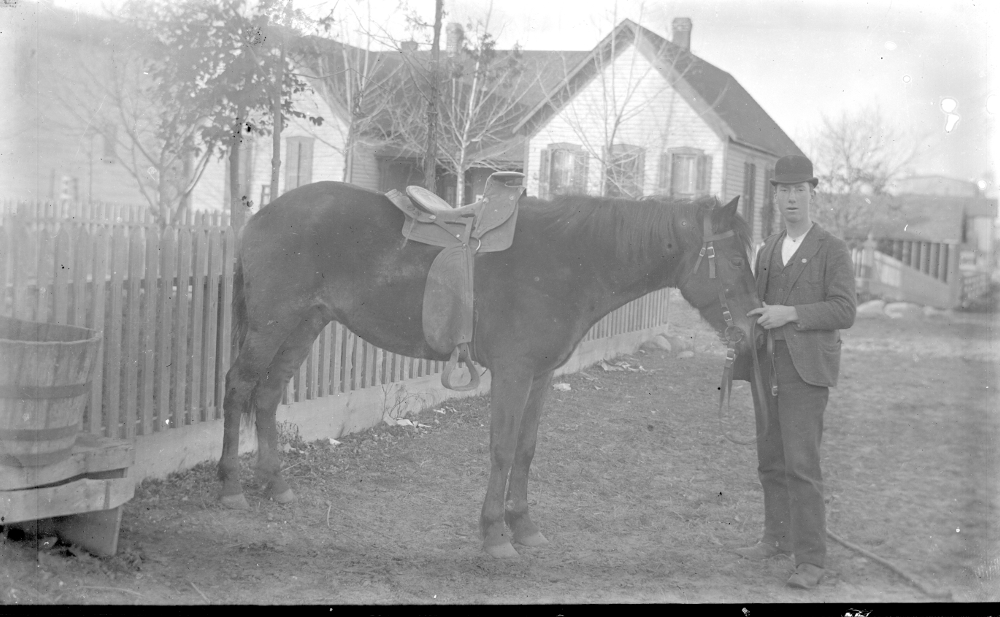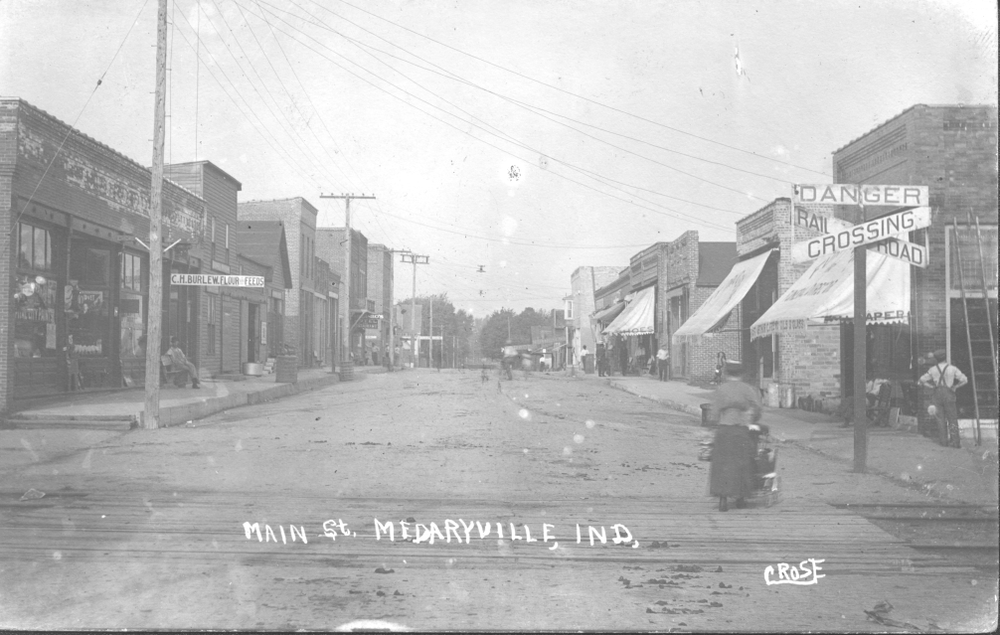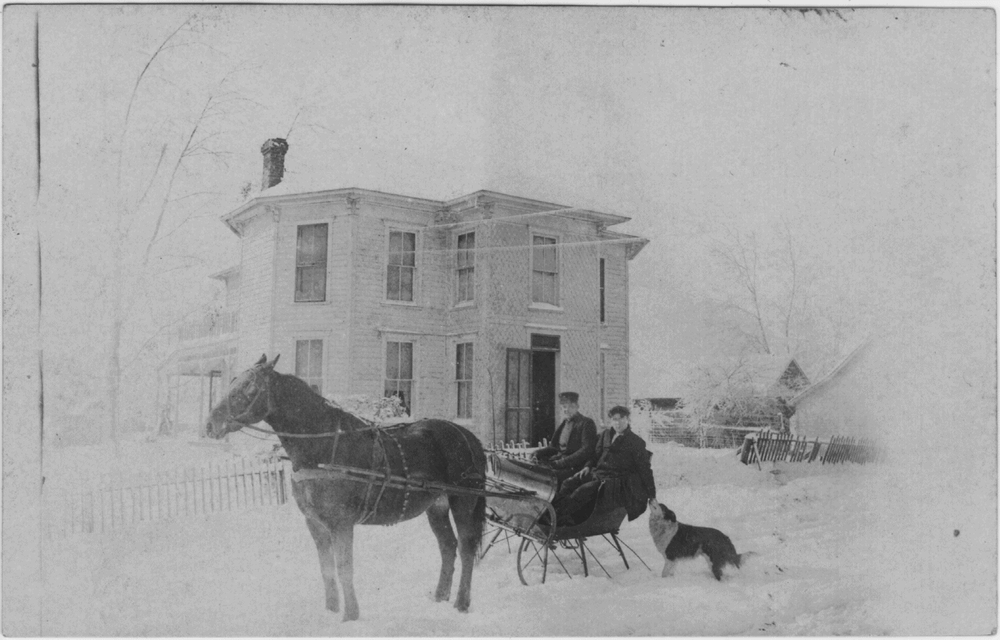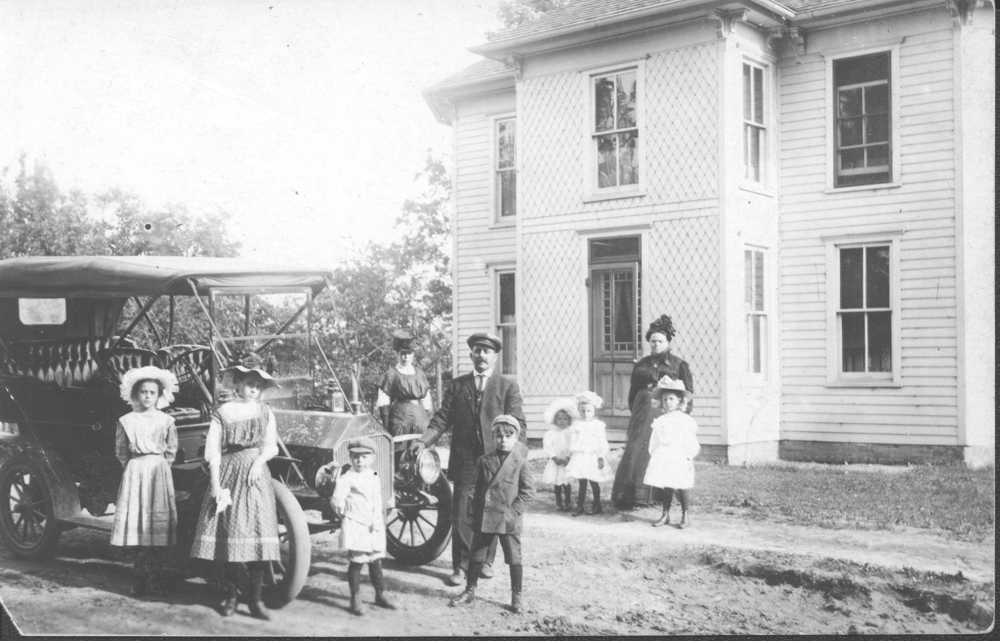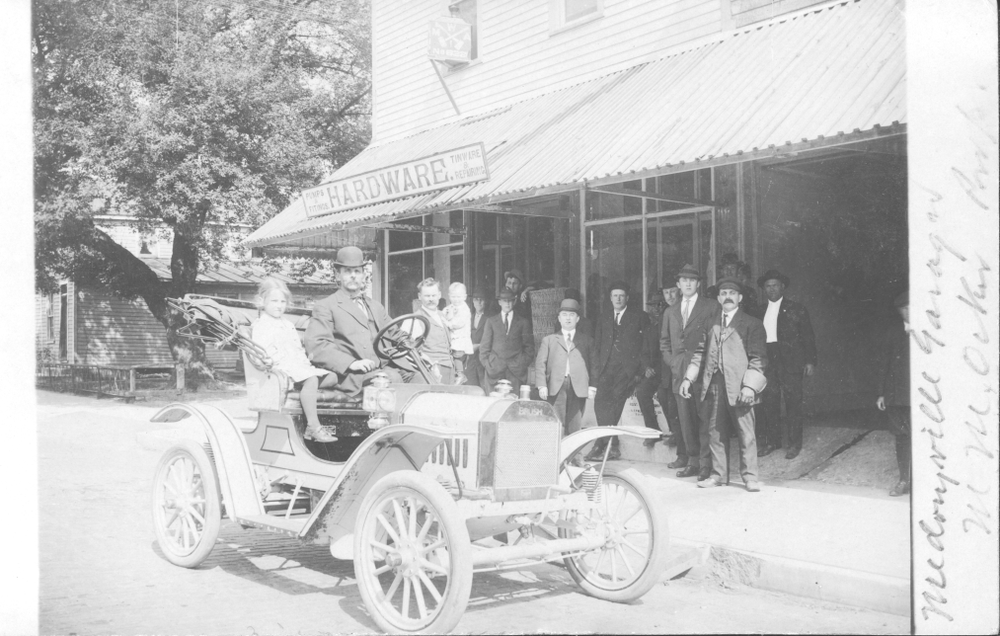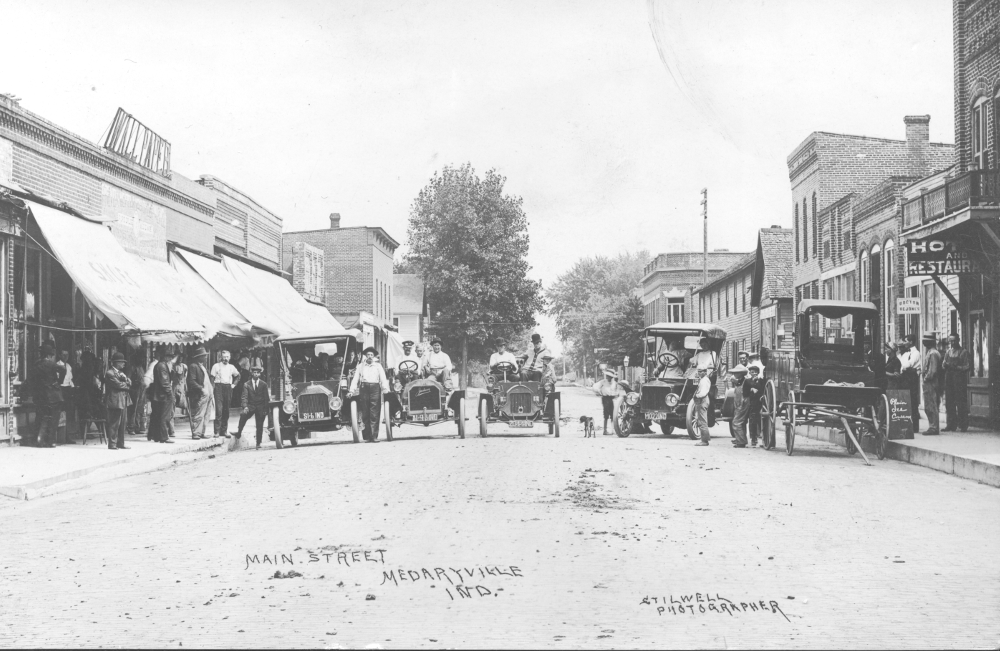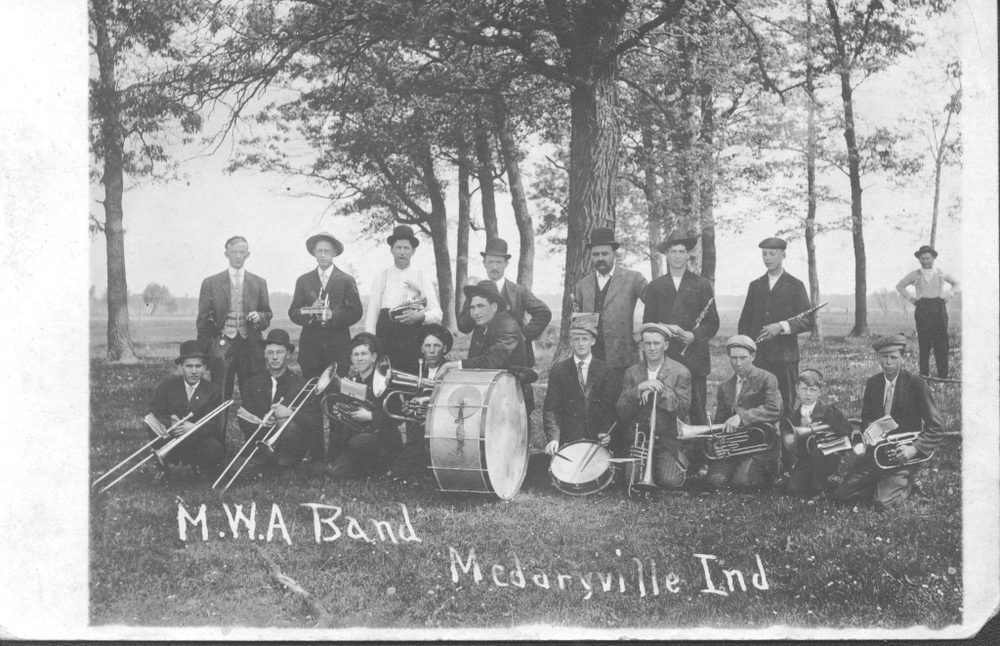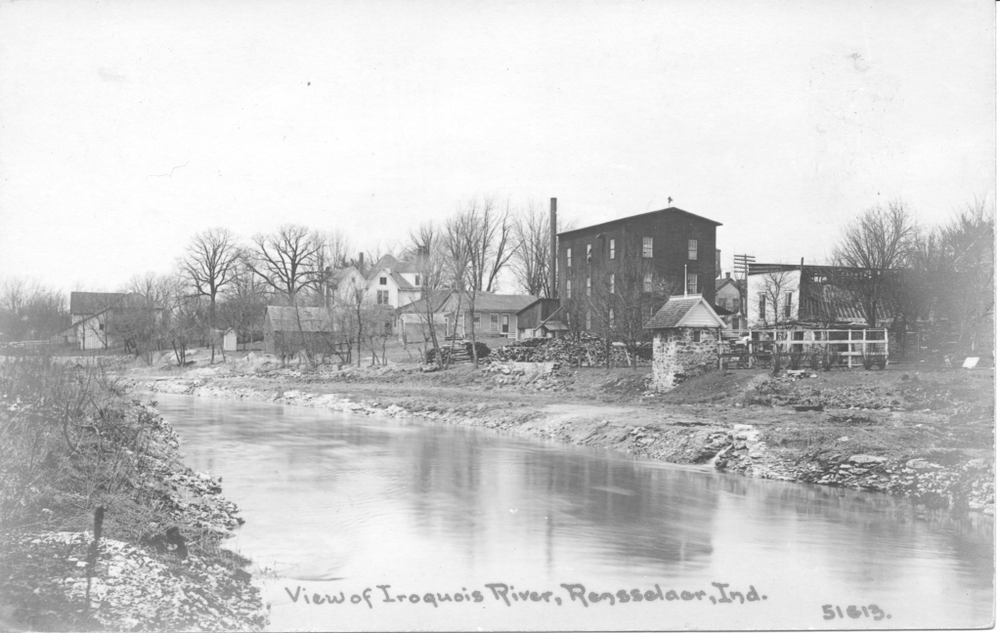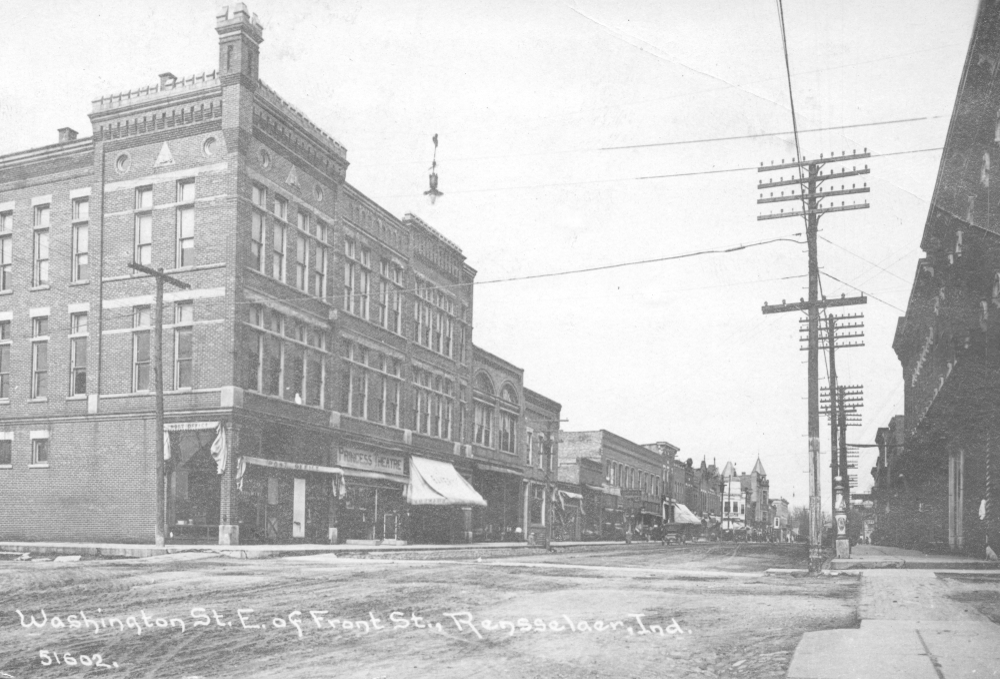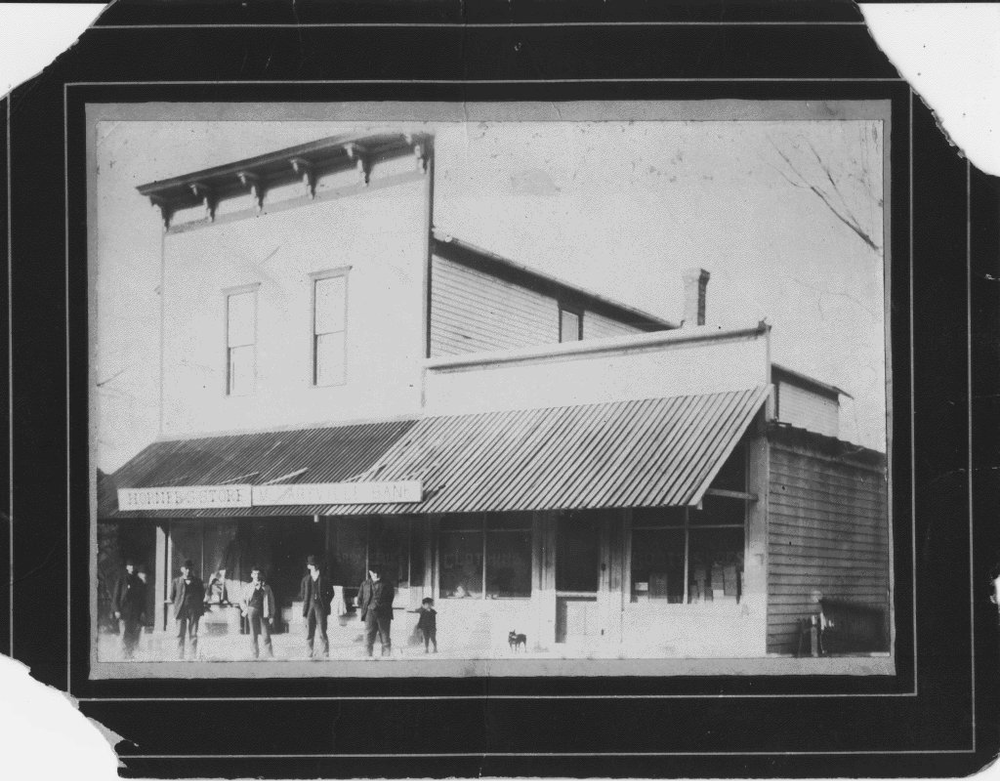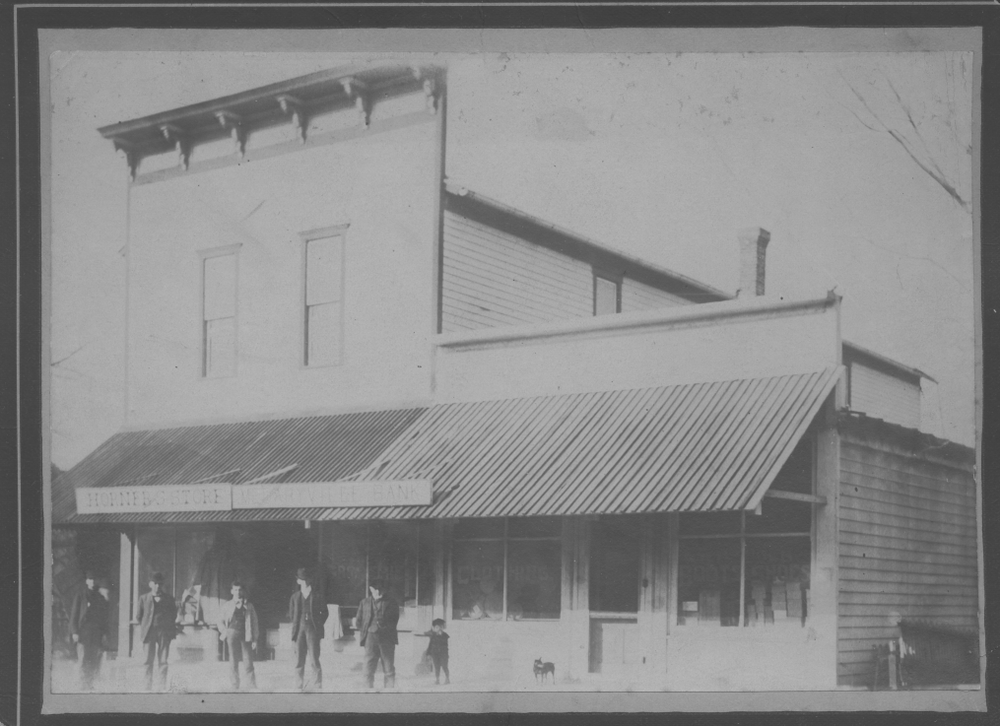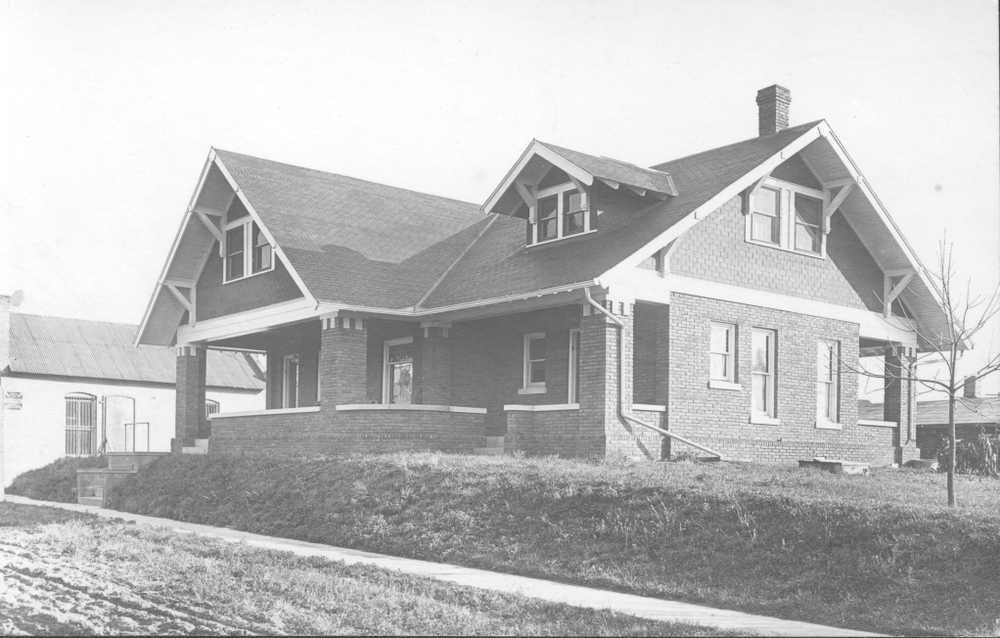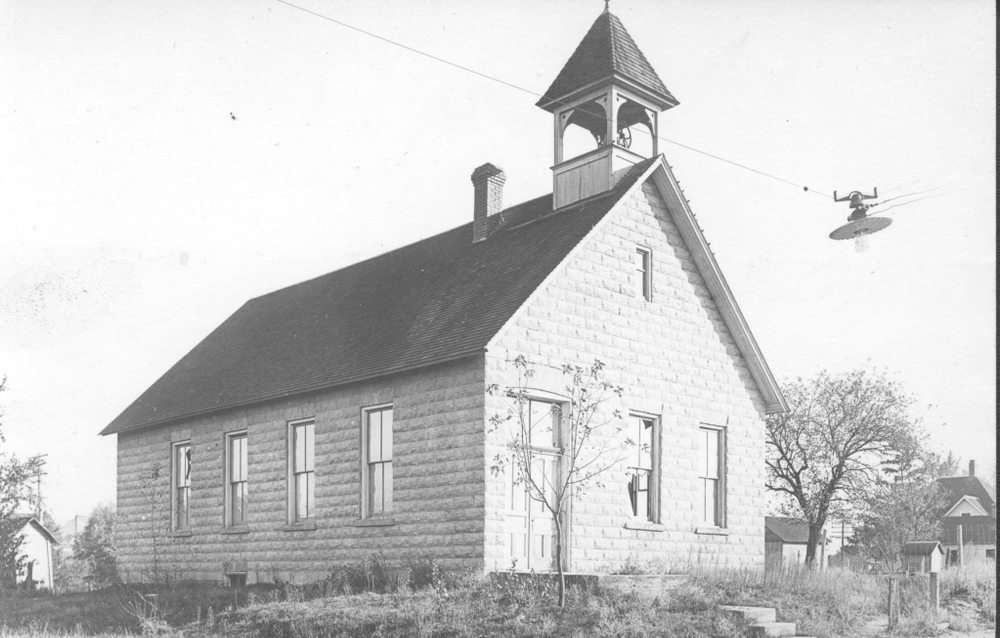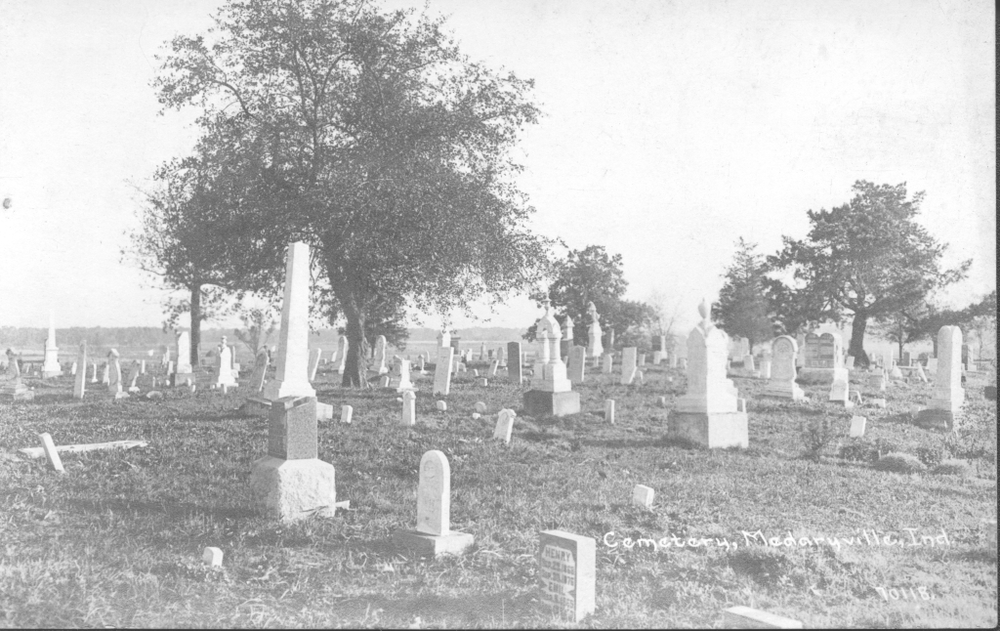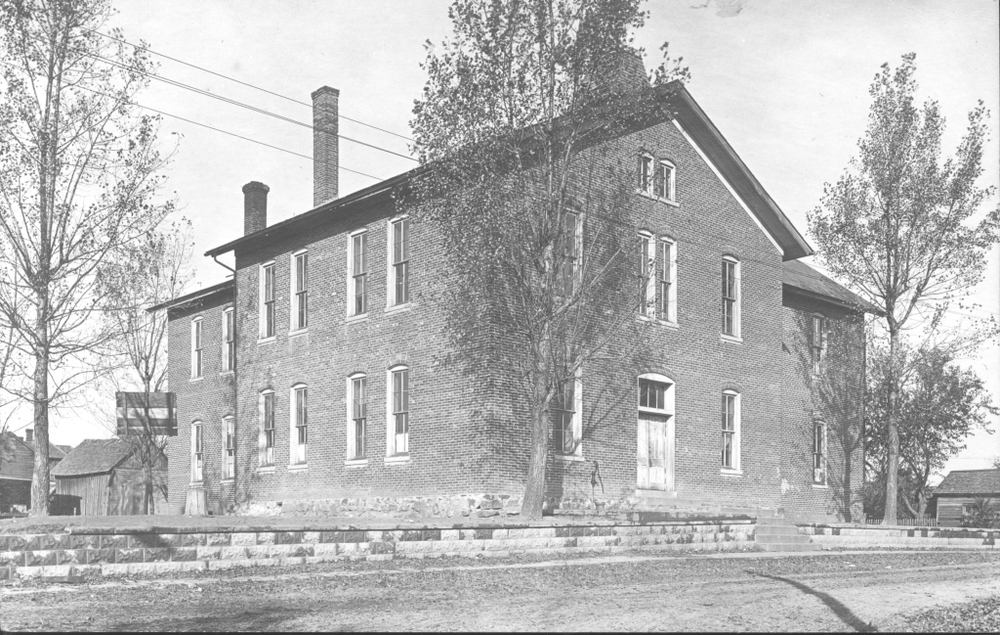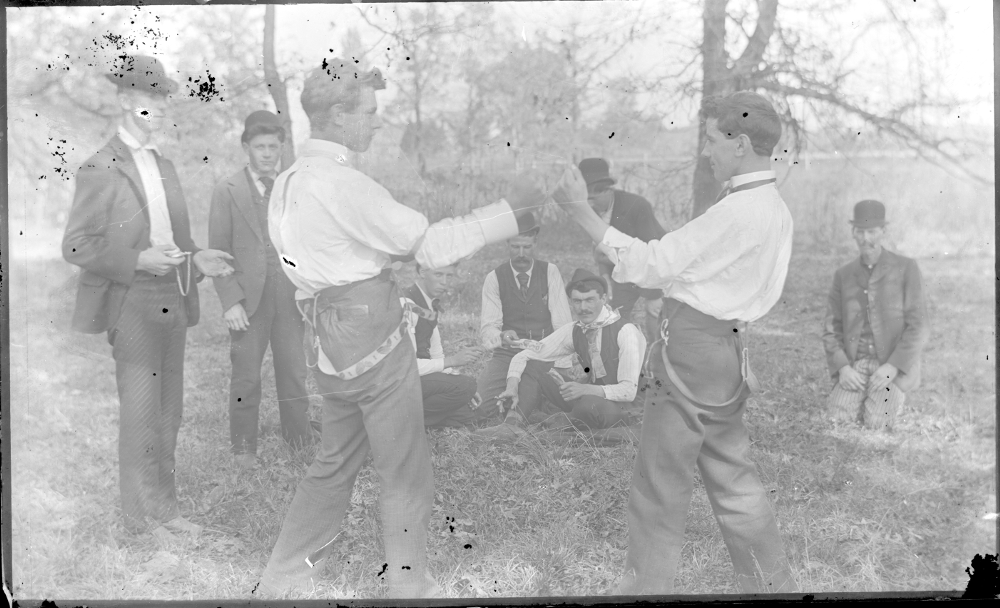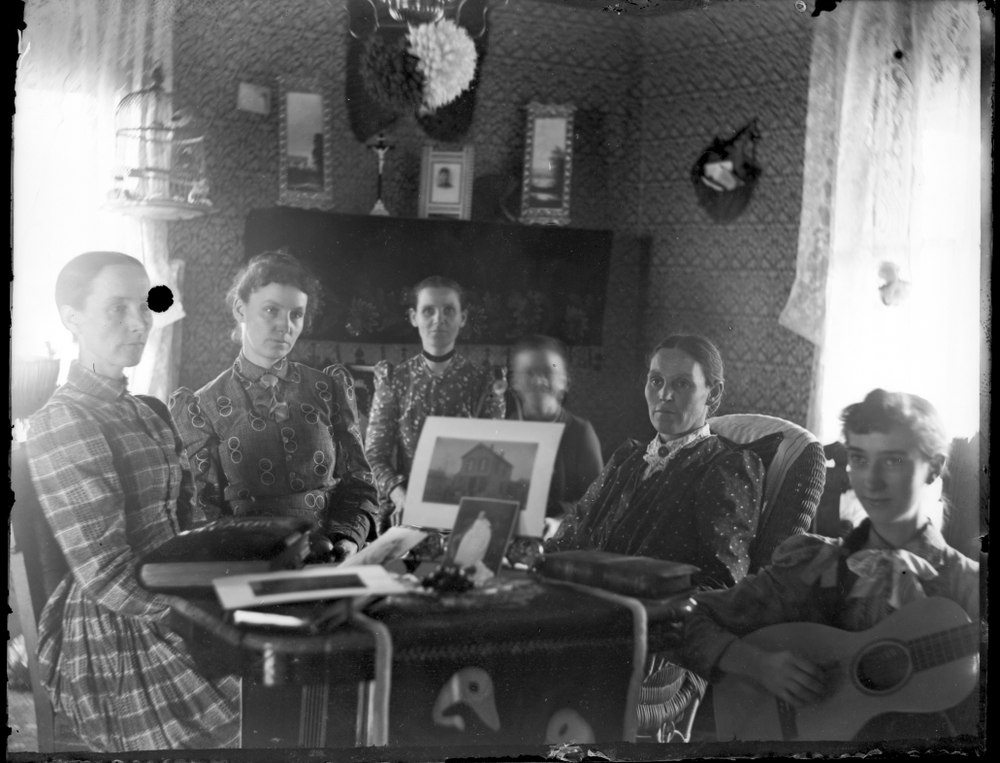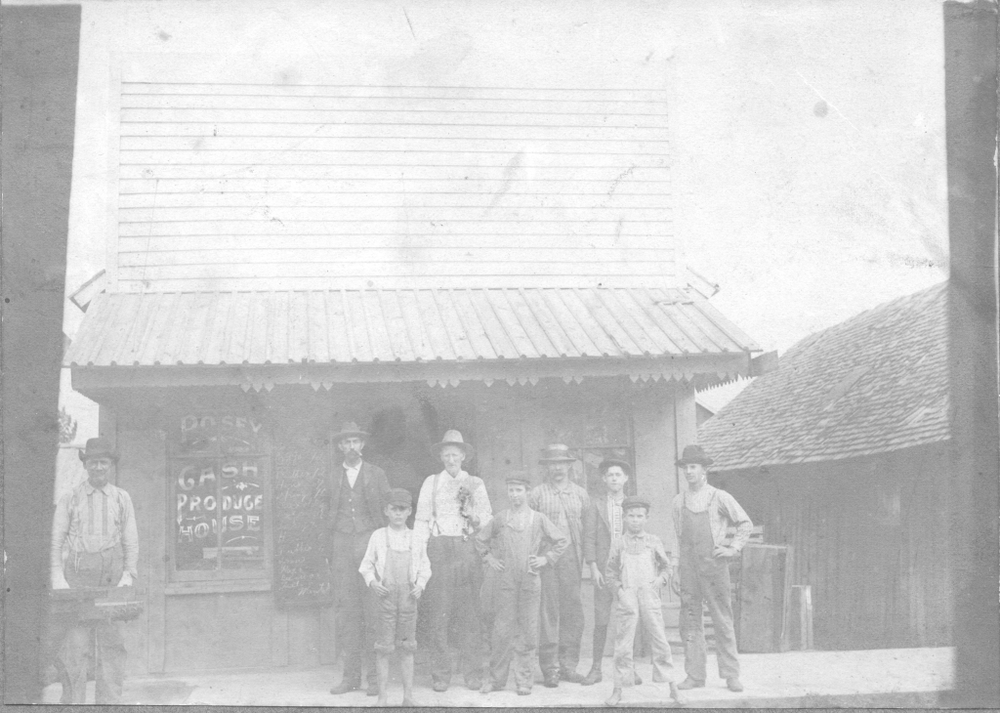
Brian Capouch
The Big Picture
- Continuous-tone images "know" much more than is easily seen
- Real picture postcards (RPPC) capture valuable historical detail
- Digitizing RPPCs is easy, and has manifold benefits
- Chicago's Charles R. Childs was a picture-postcard pioneer
- Non-RPPC images have their place, too
Here's hoping the images are big enough and clear enough!!!
I. About continuous-tone images
Continuous tone
- Similar to grayscale; colors vary continuously
- One color shades gradually into another with no gaps
- There may be hundreds of shades in a single square inch
- Such images capture enormous detail
- Old-fashioned film pictures are continuous-tone
Halftone
- Printing presses can only print one color at a time!!
- It's easy to fool the human eye
- AT A DISTANCE!!
- Halftones represent a tradeoff
- Consist of many dots of a single color
- Dot sizes vary--the bigger the dot the darker the shade
- The dots blur to simulate a continuous-tone image
- AT A DISTANCE!!
e.g.
Continuous-tone postcard by ML Photo

Halftone postcard, S.D. Kropp, Milwaukee

Continuous tone imaging is the "secret sauce" in the RPPC
II. RPPCs hold a lot of information
Some important dates
- 1893: Postcards introduced at Columbian Exposition
- 1902: Kodak sells photographic "paper" with pre-printed back
- 1907: Post Office allows messages on the backs of postcards
- 1907: Kodak introduces "Real Picture Postcard"
- They continued to produce them until ca. 1950
- Postcards became a major social phenomenon
- Chicago was the commercial production epicenter
Some Chicago-area shops
- C.R. Childs
- ML-Photo - Morris L. Masure
-
2837 Milwaukee Ave Chicago
-
- Crose - Thomas Albert Crose
- He was born near Brookston
- Harry Stilwell - studio in Monon
Case studies
The cool stuff is found using the zoomer
1. Frank Pullins (1875-1958)
ca. 1915 by Harry Stilwell






2. Dr. Hackley's (1871-1942) House
Neill Williams (1884-1965) Glass Negative


3. When did Wm. Leader's cornice collapse?

ca. 1920 by Crose

Regular people made RPPCs, too
I got two "personal" RPPCs from Don Behny, a man I never met

Seeing Frank Baughman (1865-1932)

Crowd admires Brush Runabout in front of old Horner's Store building

Ocker later moved to Wheatfield
Was a "rainmaker" there

An aside. . .

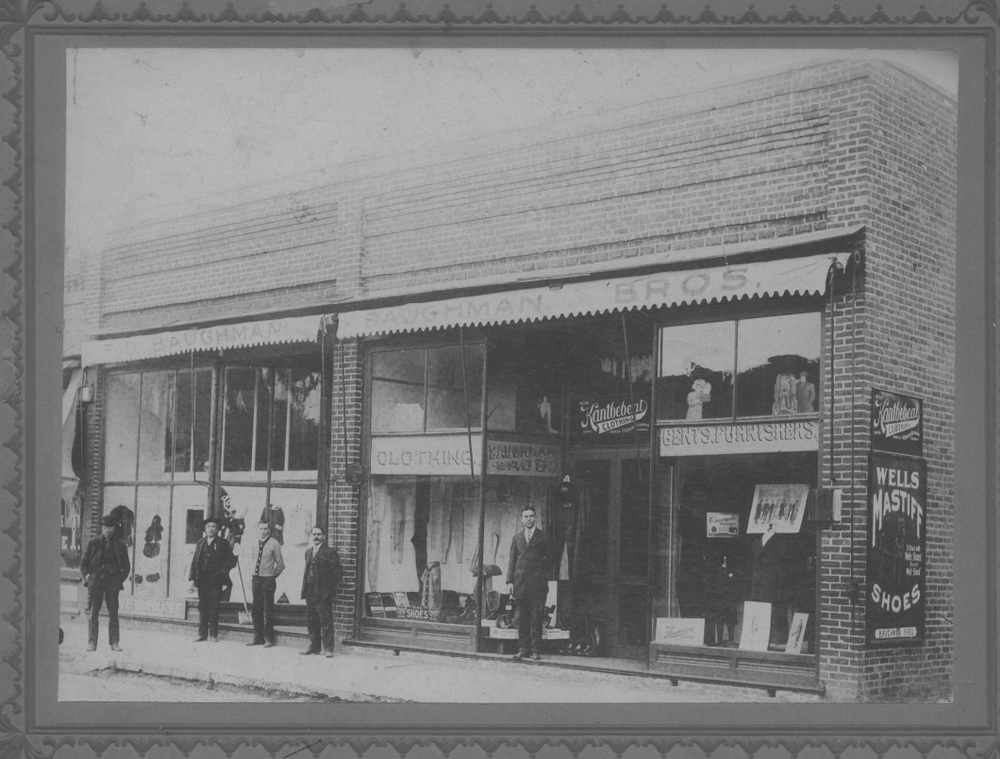
Baughman Bros. Store, Mary Baughman photo
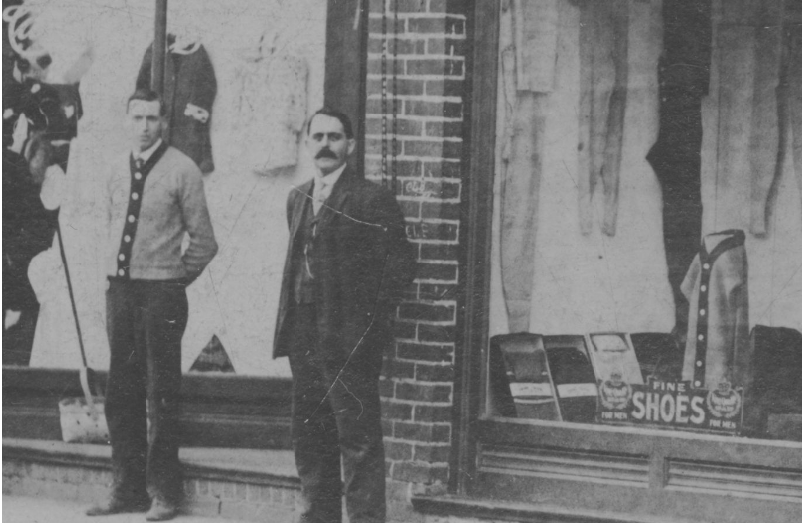
Arthur Wright, sweater model
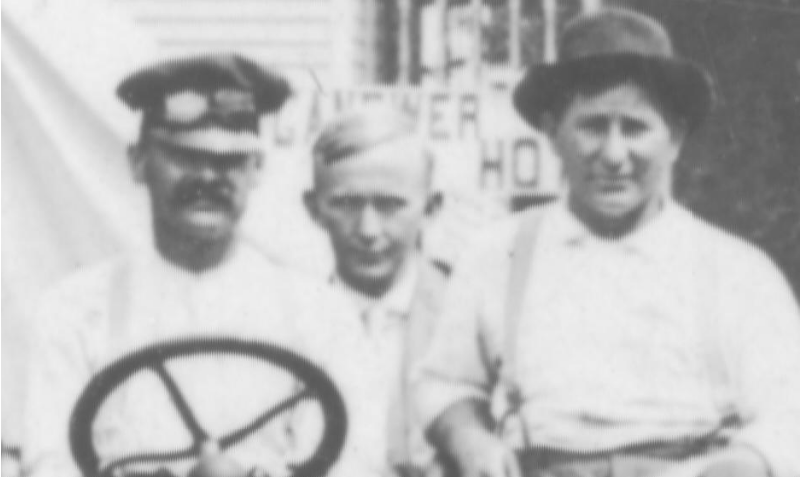
Those guys by Frank look familiar . . . .
ca. 1915, photographer unknown



Childs view of Iroquois - taken from near present-day "Busy Bee"
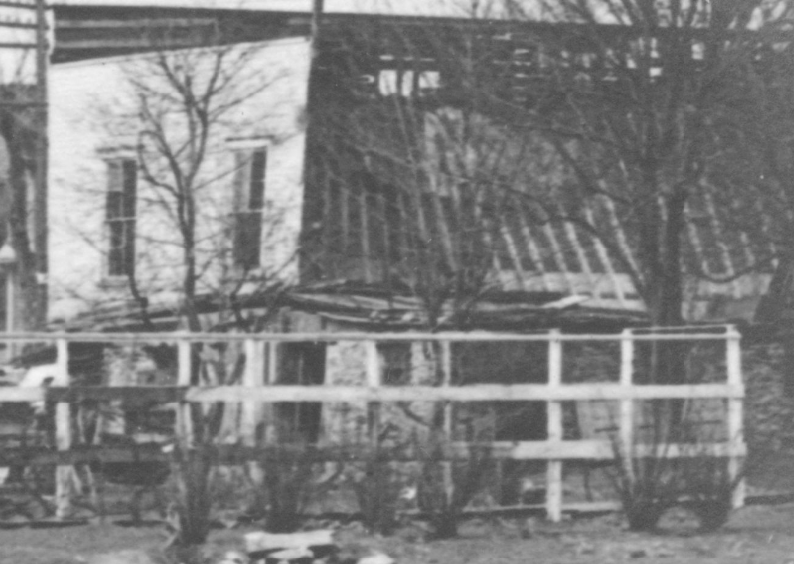
Childs image of Washington Street
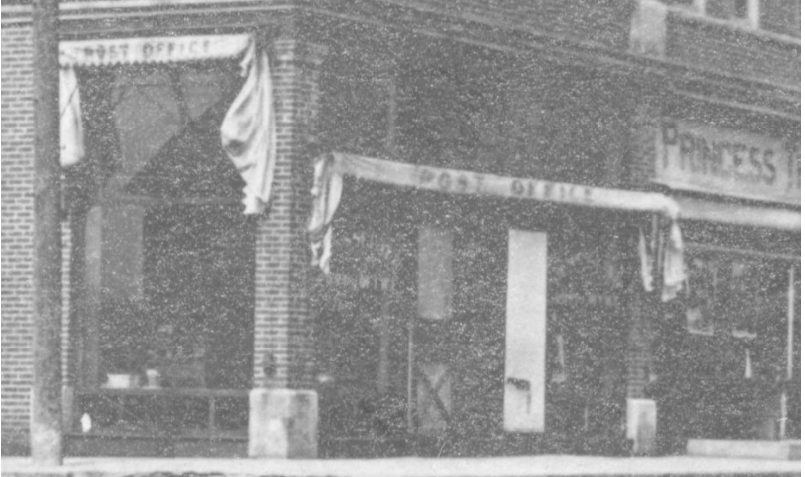
III.The digitization process

Thanks to the late Jim Schilling, of the Starke County Historical Society
Scan resolution matters
Horner Store - Mary Baughman Collection
Scanned ca. 2005
2018 Scan w/i900




File format matters too!
- General advice: archive in TIF
- Most .jpg formats LOSE information
- GIF and PNG "okay" with caveats
Even film has "resolution"
- Photographers use the term grain
- The finer the grain, the higher the resolution
- Not all RPPCs are created equal!!
IV. The amazing career of
C.R. Childs
Childs biographical highlights
- Lived his whole life in Chicago area (1875-1960)
- Very little is known about him
- Estimates vary 25,000-80,000 cards produced
- They document life in many small towns
- Not all are RPPCs
- Later work was "artsy" instead of documentary

Image courtesy of Chicago History Museum
Childs proof, 1913

Back of Childs "proof" card

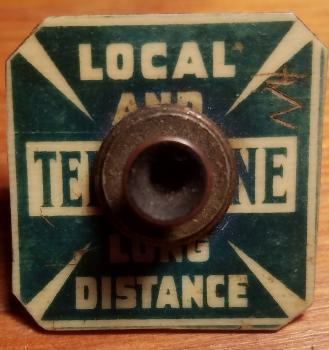
Some Childs Proofs
Medaryville Free Methodist Church
Medaryville Cemetery, est. 1852
Medaryville's Third School, 1888, with additions
Sometimes his images were "borrowed" by others


V. Other types of images can be useful, too
Glass negatives
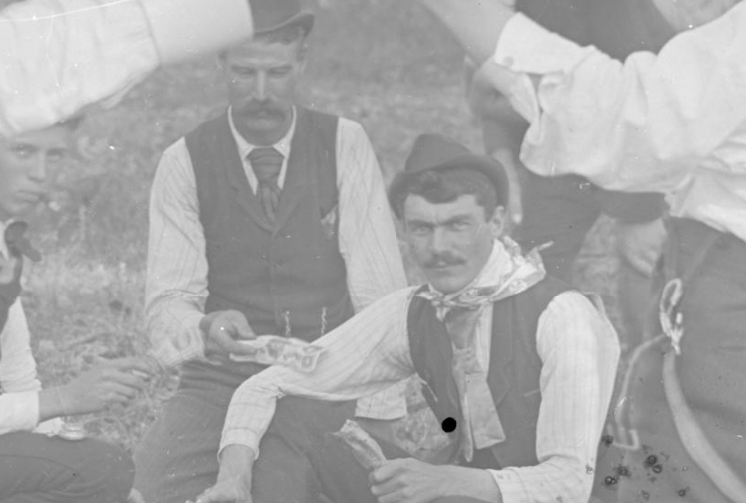
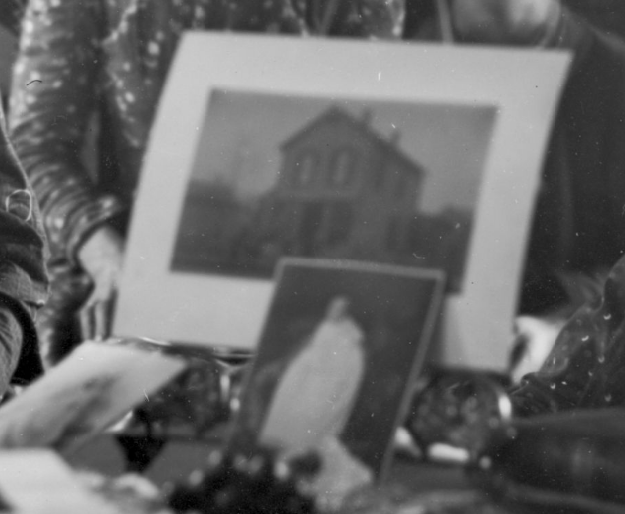
Newspaper photos
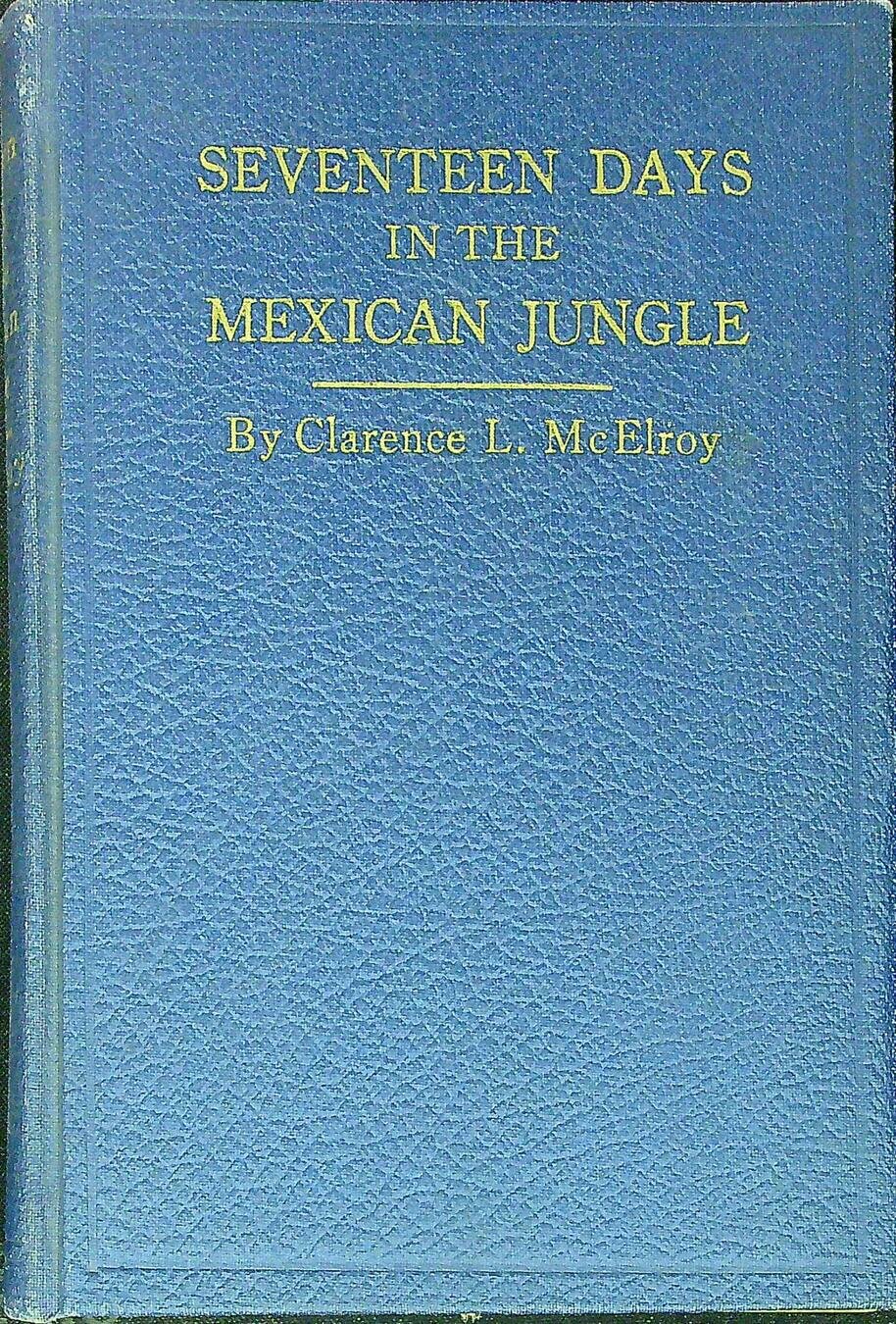
Personal photos
Mary Baughman photo

1974 Cheap-camera photo, courtesy Charles Clawson
A few words about the book . . .
Real Picture Postcards
By capouch
Real Picture Postcards
- 2,152
